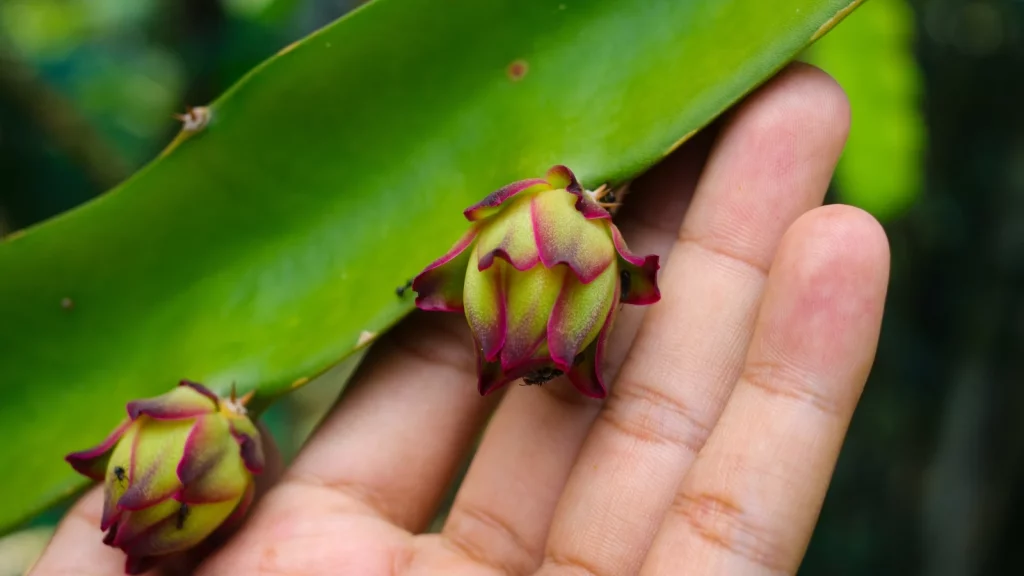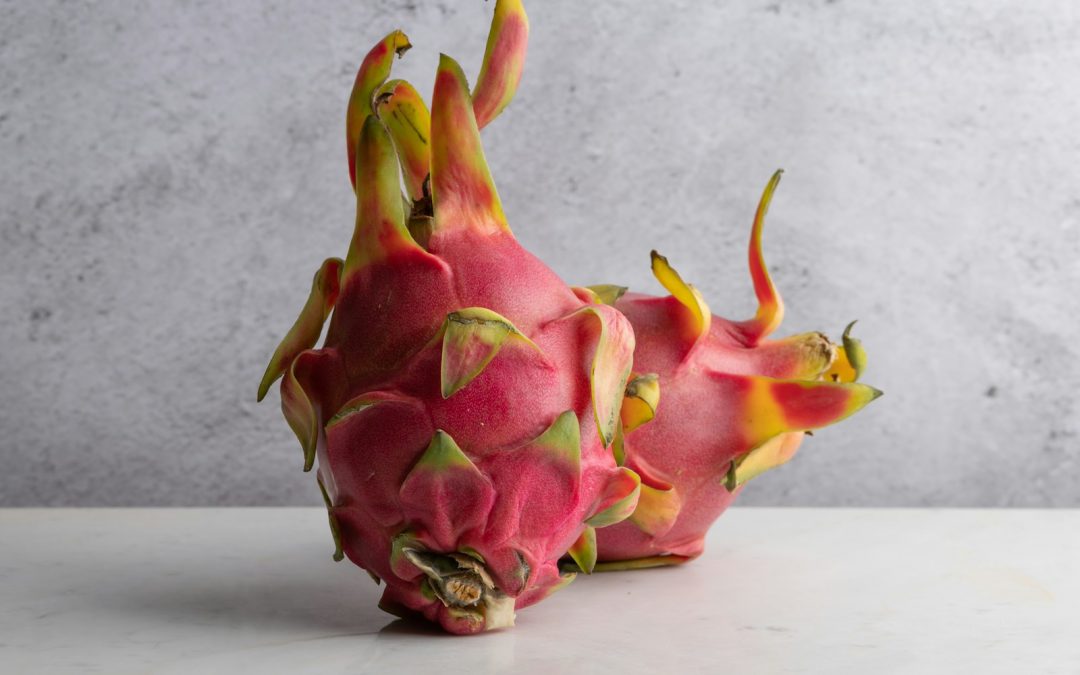Understanding the nutrient requirements for dragon fruit is the difference between a spindly cactus that barely grows and a strong, climbing plant loaded with colourful fruit. Once you get the balance of nitrogen, phosphorus, potassium, and trace elements right, dragon fruit becomes far easier to manage.
If you’re still setting up your pots, trellis and general care routine, it pairs nicely with our Dragon Fruit Care: Tips for Strong, Healthy Growth guide, which covers light, watering, and pruning in more detail.
Contents
- 0.1 Why Nutrition Matters for Dragon Fruit
- 0.2 Key Nutrients Dragon Fruit Needs
- 0.3 Choosing the Right Fertiliser for Dragon Fruit
- 0.4 Feeding Schedule: How Often to Fertilise Dragon Fruit
- 0.5 Soil, pH, and Drainage for Better Nutrient Uptake
- 0.6 Signs of Nutrient Deficiency in Dragon Fruit
- 0.7 FAQs About Nutrient Requirements for Dragon Fruit
- 0.8 Final Thoughts on Nutrient Requirements for Dragon Fruit
- 0.9 Related Articles
- 1 Learn How Balanced Fertilizers Maximise Growth and Health
Why Nutrition Matters for Dragon Fruit
Dragon fruit may look tough, but it still has quite specific nutrient requirements. In its native environment, it grows in warm, well-drained soils rich in organic matter. In containers or home gardens, the plant relies on you to supply those nutrients.
Good nutrition helps dragon fruit to:
produce strong, fleshy stems that can climb and support fruit
form plenty of healthy flower buds and set fruit reliably
resist stress from heat, light changes, and minor pests
recover quickly after pruning or training on a trellis
Ignoring the nutrient requirements for dragon fruit usually leads to pale, thin growth, poor flowering, and small or misshapen fruit.

Key Nutrients Dragon Fruit Needs
Like most fruiting plants, dragon fruit needs a balance of the big three macronutrients — nitrogen (N), phosphorus (P), and potassium (K) — plus a range of micronutrients.
Nitrogen (N) – fuels leafy, green growth. Too little and stems stay thin; too much and you get lots of growth but fewer flowers.
Phosphorus (P) – supports root development and flower and fruit formation.
Potassium (K) – essential for overall plant health, disease resistance, and good fruit quality.
Dragon fruit also benefits from smaller amounts of calcium, magnesium, iron, and trace elements. A complete, balanced fertiliser designed for fruiting plants or cacti will usually cover these micronutrients.
When you think about the nutrient requirements for dragon fruit, aim for a fertiliser that supports steady, moderate growth rather than forcing the plant with very high nitrogen.
Choosing the Right Fertiliser for Dragon Fruit
You don’t need anything extremely specialised, but your fertiliser should match the nutrient requirements for dragon fruit and the way you prefer to garden.
Balanced granular or slow-release fertilisers
Granular or coated slow-release feeds are easy to use and provide a steady trickle of nutrients over several months. They work well for plants grown outdoors or in large containers.
A balanced granular fertiliser for fruiting cacti and succulents is ideal for dragon fruit grown in big pots or raised beds.
Liquid fertilisers
Liquid feeds are mixed with water and applied during normal watering. They’re great if you like more control or are growing dragon fruit indoors where you check plants regularly.
A liquid fertiliser formulated for flowering and fruiting plants works well as long as you dilute it correctly and don’t overuse it.
Organic vs synthetic
Organic fertilisers (such as seaweed, compost, or worm castings) release nutrients slowly and help improve soil structure.
Synthetic fertilisers give more precise, immediate nutrient levels.
Many growers use a mix: organic matter in the soil plus a light synthetic feed during the main growing season to meet the nutrient requirements for dragon fruit more accurately.
Feeding Schedule: How Often to Fertilise Dragon Fruit
Feeding dragon fruit is mostly about timing and moderation. The plant grows in bursts and then rests, so your fertiliser schedule should follow that rhythm.
Young plants
For the first year:
Feed lightly every 4–6 weeks in spring and summer.
Use a diluted liquid fertiliser or a small amount of slow-release pellets mixed into the top layer of soil.
The goal is to support root and stem development, not to force rapid, weak growth.
Established plants
Once your dragon fruit is mature and climbing its support:
Apply a balanced fertiliser in early spring as growth starts.
Feed again just before flowering and lightly after fruit has set.
Ease off feeding in late autumn and winter when growth naturally slows.
If you’re growing dragon fruit indoors under strong grow lights, it may stay active for longer. Keep an eye on growth and adjust feeding so you’re still matching the real nutrient requirements for dragon fruit, not just feeding out of habit.
Soil, pH, and Drainage for Better Nutrient Uptake
Even the best fertiliser won’t help if the roots can’t access it. Good soil structure is a huge part of meeting the nutrient requirements for dragon fruit.
Soil type: use a free-draining mix, often a blend of cactus soil, compost, and perlite or grit. Heavy, waterlogged soil starves roots of oxygen and locks up nutrients.
pH: dragon fruit prefers slightly acidic to neutral soil (around 6–7). Extremely alkaline soil can cause micronutrient deficiencies, especially iron.
Organic matter: adding compost or well-rotted manure improves nutrient-holding capacity and soil life, which helps make nutrients more available.
According to a university extension article on dragon fruit nutrition, plants grown in well-drained, slightly acidic soil with regular but moderate feeding show far fewer deficiency symptoms than those grown in compact, very alkaline soils.

Signs of Nutrient Deficiency in Dragon Fruit
Keeping an eye on the foliage and stems helps you spot when nutrient requirements for dragon fruit aren’t being met.
Common signs include:
Pale, yellowing stems – often linked to nitrogen or iron issues, or waterlogged soil.
Slow, weak growth – may indicate overall nutrient shortage or roots struggling in compact soil.
Poor flowering or fruit set – can be linked to low phosphorus or potassium, or simply insufficient light.
Small, misshapen fruit – sometimes caused by inconsistent feeding or watering during fruit development.
Always check basics first: light, watering, and drainage. If those are right and the plant still looks “hungry,” a gentle, balanced feed can usually help correct minor deficiencies over time.
FAQs About Nutrient Requirements for Dragon Fruit
1. What NPK ratio is best for dragon fruit?
There’s no single perfect number, but a balanced fertiliser with moderate nitrogen and good levels of phosphorus and potassium works well. Avoid very high-nitrogen feeds that push soft, weak growth.
2. How often should I fertilise dragon fruit in pots?
In spring and summer, feeding every 4–6 weeks with a balanced product is often enough. In cooler months, reduce or pause feeding unless the plant is still actively growing.
3. Can I use cactus fertiliser for dragon fruit?
Yes, many cactus fertilisers are suitable, especially those formulated for flowering cacti. Just check the label and avoid products that are extremely high in nitrogen.
4. Do I still need fertiliser if I use rich compost?
Good compost helps, but dragon fruit in containers will still use up nutrients over time. Light, regular feeding keeps levels topped up and matched to the plant’s needs.
5. What’s the biggest mistake with dragon fruit fertilising?
Overdoing it. Giving too much fertiliser too often can cause salt build-up, root stress, and lots of leafy growth with little fruit. Gentle, consistent feeding is much safer.
Final Thoughts on Nutrient Requirements for Dragon Fruit
Once you understand the basic nutrient requirements for dragon fruit, feeding stops being a guessing game. A well-draining soil mix, steady but moderate fertilising, and occasional checks for deficiency signs are usually enough to keep plants strong and productive.
Start with a balanced fertiliser, adjust based on how your dragon fruit actually grows, and remember that light, water, and drainage all work alongside nutrition. When these pieces come together, dragon fruit becomes one of the most rewarding fruiting plants you can grow at home.
Related Articles
BALANCE YOUR FEEDING ACROSS ALL PLANTS
Learn How Balanced Fertilizers Maximise Growth and Health
Once you’ve dialled in the nutrient requirements for dragon fruit, it’s easier to fine-tune feeding for the rest of your indoor and outdoor plants too. Our Balanced Fertilizers guide explains NPK ratios, how different nutrients affect growth, and how to choose the right mix for your whole garden — not just dragon fruit.

